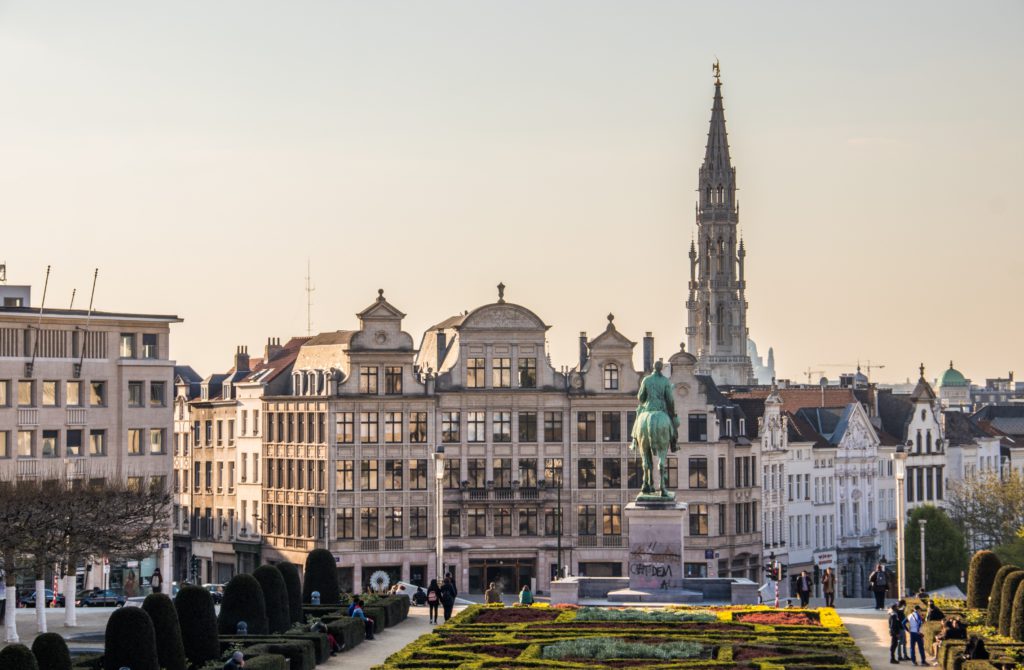Guardian: Can coronavirus cure Brussels of its addiction to driving?
Traffic jams, pretty squares used as car parks, bike lanes that vanish into congested roundabouts: Brussels’s love affair with the car has been waning for several years. Now city authorities are using coronavirus to kickstart plans to reduce the dominance of the car, by creating cycle lanes and “slow streets” that give pedestrians priority.
After traffic plunged as a result of home working, Brussels is creating 25 miles (40km) of bike lanes, including on some of the busiest arteries that connect the European district to the heart of the city.
From Monday the entire historic city centre has been turned into slow streets, where cars are limited to 20km an hour and must give priority to pedestrians and cyclists.
The idea is to give more space to city dwellers at a time when everyone is meant to keep a distance of 1.5 metres. Planners hope to reduce pavement conflicts between joggers, walkers and shoppers queuing in streets to get into supermarkets, bakeries and newsagents...
This article from the Guardian explores how mobility in Brussels is changing in light of COVID-19. For the full article, please see here.
